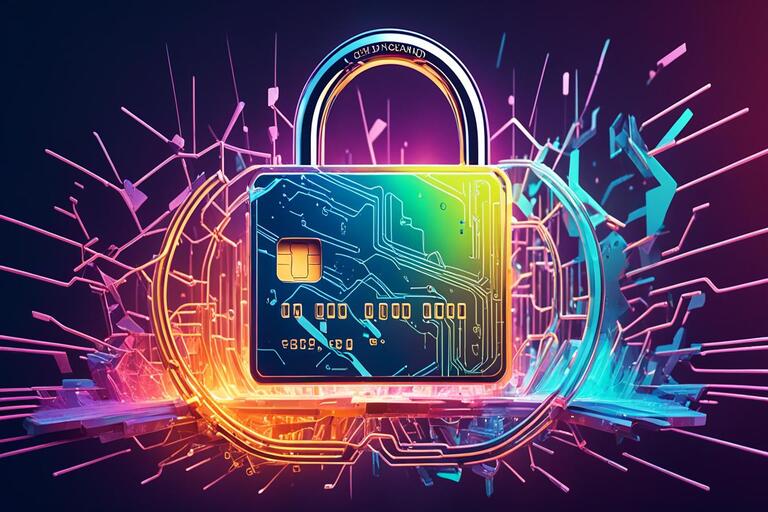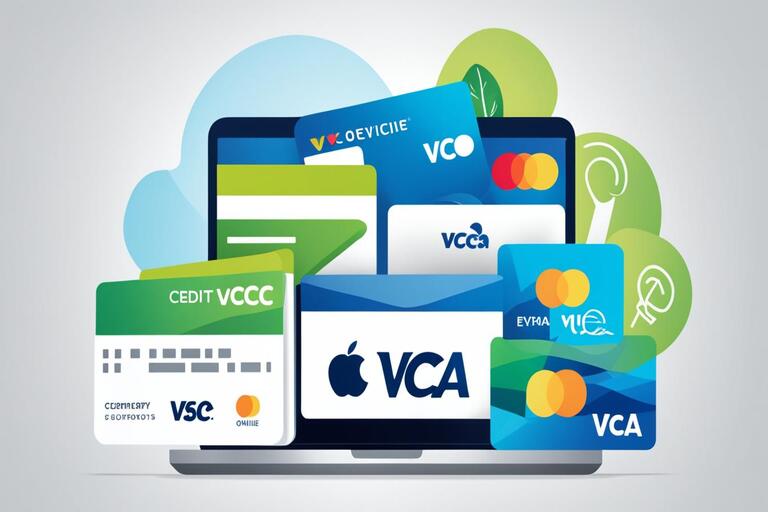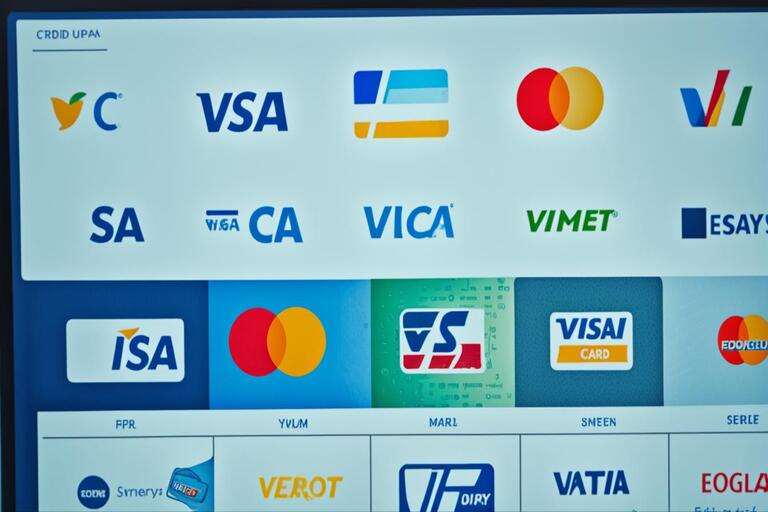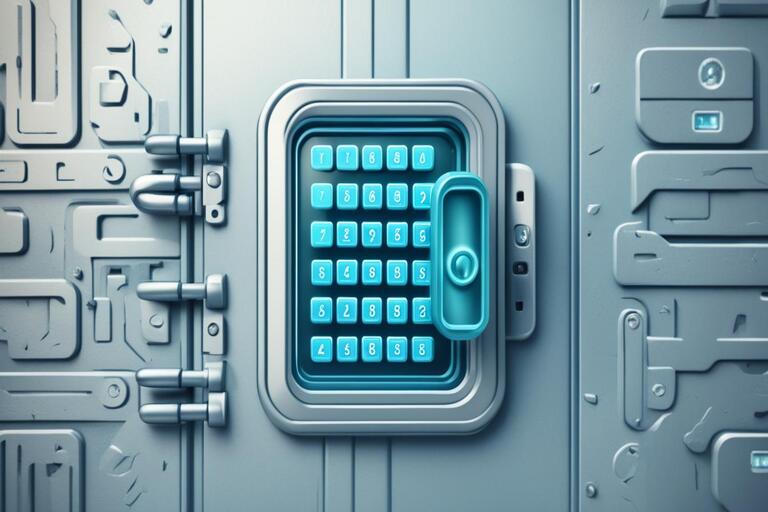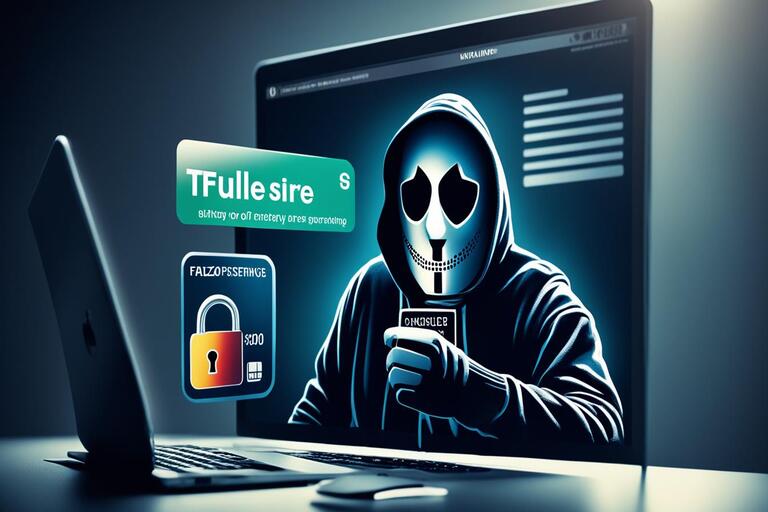
Exposed: The Dark Side of Buying Fullz Online
In the digital underground, a new trend is cause for alarm: the trade in stolen personal data, known as "fullz." This includes everything from credit card details to online accounts. You might look for things like fe-ccshop or feshop. It's all part of a bustling criminal scene online.
We're going to really dive into this world of cybercrime. You'll learn about the tricks cybercriminals use to get and sell sensitive info. This includes everything from pretending to be someone they're not to having people on the inside. The risks of data breaches, SIM swap fraud, and other scary stuff will be laid out.
But there's more to the story. We'll also talk about a huge leak of credit card data that hit a dark web market called AllWorld.Cards. The effects of this leak are huge and dangerous, putting both people and businesses at risk. Get ready to explore the dangerous world where your private info is up for grabs, making everyone a potential victim.
Key Takeaways
- The criminal underground is a thriving ecosystem where stolen personal data and financial information are traded as valuable commodities.
- Cybercriminals use a variety of tactics, including social engineering and insider threats, to obtain sensitive information such as credit card data, bank logins, and PayPal accounts.
- Data breaches and the rise of SIM swap fraud, CPN kits, and synthetic identities are further fueling the growth of this illicit market.
- The recent massive leak of millions of stolen credit cards on the dark web marketplace AllWorld.Cards represents a significant threat to consumers and organizations.
- Navigating the criminal underground requires caution, knowledge, and compliance with the law to avoid the dire consequences of engaging in cyber-crime activities.
Understanding the Criminal Underground
The "underground ecosystem" is a network of secret websites and forums. It serves as a market for shady deals on the dark web. Here, hackers trade tools and data for cybercrimes.
What is the Underground Ecosystem?
This hidden world is where cybercriminals meet to commit crimes. It's a place where stolen personal info and financial data are sold. There, these criminals turn their loot into cash.
Monetizing Stolen Data: The "Cashout" Process
The cashout process turns stolen data into money for cybercriminals. They might make fake purchases with stolen credit cards. Or they could sell PayPal accounts that they've hacked.
Identity theft and other scams are also big business here. The dark web makes these crimes easier to commit. This makes it a big danger for everyone.
Illicit Commodities: Credit Card Data

In the dark underbelly of the online world, credit card data stands out. Cybercriminals crave it the most. They sell two main types of stolen info: "dumps" and "CVVs." Dumps include everything on the card's magnetic stripe like the cardholder's name and number. CVVs are the codes on the back.
Dumps vs. CVVs: Understanding the Difference
For crimes like credit card fraud, both types are useful. Dumps can make fake cards for buying in-person or getting cash. Meanwhile, CVVs are mainly for online buys, without needing the real card.
Pricing and Availability on Dark Web Markets
On places like Rescator on the dark web, card data quality and price can vary. Cards from rich countries like the U.S. or Europe might cost more. Still, cheaper cards or those already canceled are available. There are also "non-VBV" cards that make online buying easier, which raises fraud risks.
Stealing card data and using it has made carding, a type of cybercrime, big. Platforms like FE CCShop have sprung up. They make trading stolen card data easy, fueling this profitable illegal business.
Bank Logins and PayPal Accounts: A Lucrative Trade
In the world of crime, bank account details and hacked PayPal accounts are gold. Hackers have smart ways to steal this info. They might sneak malware onto your computer or trick you into giving them your details.
Compromised Bank Account Information
Your bank login can give hackers direct access to your money. They might empty your account or do other bad things. These logins are sold on secret websites, making a whole hidden economy.
Hacked PayPal Accounts for Cashout
Hackers also target PayPal accounts. With yours, they can move money, buy things, or sell your info illegally. This can leave you facing big financial trouble.
Always be careful with your online money and personal details. Criminals are always finding new ways to steal from you.
buying fullz, feshop, feccshop, fe ccshop, fe acc18, fe-ccshop
In the dark world of cybercrime, terms like "buying fullz" and "feshop" are common. These are used on the dark web to sell stolen personal info. Terms like "feccshop," "fe ccshop," "fe acc18," and "fe-ccshop" also fit here.
"Fullz" means a full set of someone's personal details. This includes their name, address, and more. Fraudsters love "fullz" for identity theft and other scams.
FE CCShop is a big player in this illegal market. It's known for a wide range of products. Shopping on feccshop is easy, thanks to its simple layout and helpful customer service.
It accepts payments in Bitcoin and Perfect Money. FE CCShop also has round-the-clock support for its users. Plus, it's praised for secure tech that protects buyer info.
Yet, buying "fullz" and other stolen info is risky business. It's often illegal. Always research well and pick trustworthy sellers. Avoid fishy deals and scams to stay safe from fraud.
Personal Data and Documents: Fuel for Identity Theft

Underground criminals sell personal data and documents. These include "fullz," or complete sets of personal information. This can lead to identity theft and fraud. Information like name, address, Social Security number, and birth date are up for sale.
Fullz: The Ultimate Identity Theft Package
A "fullz" is very valuable in the world of identity theft. It contains someone's complete details, like name, address, and Social Security number. With a fullz, cybercriminals can take out loans, open credit lines, or even fake tax returns.
Pricing Factors for Fullz
Prices for fullz on the dark web vary. They depend on how detailed the information is. Fullz with verified government documents can cost between $20 and $200.
Fullz without such documents might cost only $5 to $10. Criminals want these to make money off stolen identities.
The Dark Web Marketplace: A Thriving Economy
The dark web has become a hotspot for illegal activities. It is accessed through the Tor network. There, cybercriminals can trade in everything from illicit goods to personal data.
Accessing Underground Markets on Tor
The Tor network is key to reaching these underground markets. It hides the identity of those involved, keeping them safe from authorities. Using encryption and special routing, the criminal ecosystem avoids easy detection.
On these sites, you can find everything from credit card details to malware. The ability to stay anonymous on Tor fuels the growth of these underground markets. It promises secrecy and attracts more users.
Social Engineering: The Art of Deception
Cybercriminals often use social engineering to get important info and sneak into systems. They commonly use spear phishing. This is when they send targeted emails, making them look real. They try to trick people into clicking harmful links or opening dangerous attachments.
Spear Phishing Attacks
Spear phishing involves detailed, targeted emails. Attackers learn a lot about their targets. They know their likes, job details, and relationships, making their messages look real and trustworthy. Because people are involved, these tricks get past many security setups, causing serious problems.
Replay Attacks and SQL Injections
Besides spear phishing, cybercriminals use tactics like replay attacks and SQL injections. Replay attacks steal and reuse info to break in. SQL injections find holes in websites to take control or steal information.
These tricks, along with easy access to stolen personal and financial info, really put everyone at risk. Being alert and having strong security steps is key. This includes training employees and using tools like multi-factor sign-in to protect against data breaches and other cybersecurity dangers.
Password Security and Credential Stuffing
In today's world, keeping your passwords safe is more important than ever. Cybercriminals are always looking for ways to steal information. An alarming 81% of hacks happen because of stolen passwords or data. This shows why it's crucial to have strong password security to stop data breaches and credential stuffing attacks.
Places like FE CCShop are big problems because they sell personal data that's been stolen. With this data, criminals can break into accounts and cause a lot of harm. To protect yourself, it's key to use strong, unique passwords. Also, don't forget to update your passwords regularly and add extra password protections whenever you can.
The table shows many websites known for selling stolen credit card information and other data. Places like FE CCShop provide various types of stolen data. Criminals use this information for financial fraud and identity theft.
To protect against this, everyone should focus on keeping passwords strong and unique. Make sure to change your passwords often and use multi-factor authentication. These steps are crucial in avoiding data breaches and credential stuffing attacks. They help keep your info and money safe from cybercriminals' tricks.
Insider Threats: The Enemy Within
One big cybersecurity problem is insider threats. These come from current or past employees. They're hard to stop because they can avoid usual security measures. Insider threats include things like accidentally sharing secrets or even deliberately attacking the company.
Accidental Breaches
Some insider threats don't mean any harm. They happen by mistake. For example, sending a secret to the wrong person or letting private papers lie around. These errors can lead to big troubles, just like on-purpose attacks do.
Malicious Insiders and Disgruntled Employees
But there's also a darker side. Some employees may be out to get the company. They might want to see it fail. These unhappy insiders can cause all sorts of problems, from stealing data to messing with how things work. Their actions can be very damaging to both security and the good name of the company.
Stopping insider threats means using many methods. This includes watching over employees, teaching them well, and having strong security rules. With the right steps, organizations can avoid major harm. They can keep their data safe, their money secure, and their trust with the public strong.
The Impact of Data Breaches
Theft of data like login info and credit card numbers hits hard. It can be a nightmare for both people and companies. Hackers might use this info for financial scams, like buying things with your money or draining your bank account. Or they might try to get loans or new credit cards using your name. This leads to major money problems, bad credit, and a long journey to fix things.
Financial Fraud and Identity Theft
Your personal data in the wrong hands opens the door to many scams. Thieves could use your credit card or bank info to buy things, get new credit, or cheat with your taxes. This messes up your money situation, putting you at risk for identity theft. Fixing this and getting your life straight can be very tough.
Eroding Trust in Organizations
Data breaches hurt more than just the people affected. Companies and groups hit by breaches lose trust. People may not believe they can protect private info. Big breaches can really stain a company's name, leading to less loyalty from customers. These companies face ongoing struggles with cybersecurity. It’s a big job to earn back trust after a breach. This shows why good data protection is so important.
Stolen Account Data Kits: Fueling SIM Swap Fraud
The criminal underground has seen an increase in the use of "fullz." These are kits containing stolen account data. Cybercriminals use this data to steal identities. They find everything they need in these kits, from names to Social Security numbers.
Job Scams and Personal Data Collection
Job scams are a key way cybercriminals gather personal data. They use fake job ads to trick job seekers. Victims end up giving away their full names, contact info, and ID copies. This data becomes part of the "fullz" kits.
Android Malware and Multi-Factor Authentication Bypass
Cybercriminals also use Android malware to harvest data. This malware can get around strong multi-factor authentication. With this stolen data, they access victim's accounts. This feeds into their identity fraud efforts.
SIM Swapping: Overcoming Two-Factor Authentication
SIM swapping attacks are a rising issue. Criminals get a hold of victims' phone numbers fraudulently. This lets them bypass two-factor authentication. Then they can access all kinds of online accounts, from banking to social media.
CPN Kits and Synthetic Identities
Stolen personal info is easy to find on the dark web, like social security numbers. This has sparked the growth of CPN kits and synthetic identities. Cybercriminals now use these to avoid credit checks, creating many new financial accounts. Sadly, this leads to identity theft and fraud.
Combining Stolen SSNs and Personal Information
CPN kits help criminals get an alternative credit number. They mix CPNs with names, addresses, and birth dates to forge synthetic identities. These fake identities allow them to open new credit accounts, get loans, and commit fraudulent activities.
Shows the SEO rankings and social media metrics for platforms linked to CPN kits and synthetic identities. It reveals the large, threatening impact they have on both people and businesses.
The Massive Leak: Millions of Stolen Credit Cards for Free
The dark web marketplace AllWorld.Cards recently offered a shocking deal. A huge collection of stolen credit card information went up for free. This includes millions of credit card numbers, CVVs, and more. It's a big risk for people and businesses alike.
AllWorld.Cards and the Treasure Trove of Stolen Data
AllWorld.Cards has caught the eye of online thieves. They can get their hands on lots of stolen credit card data easily. This points out how big the problem of data breaches in finance really is.
Common Techniques for Stealing Credit Card Numbers
Thieves have many tricks to steal credit card data. They might use skimming devices at stores or online Magecart attacks. Even some people working at these companies can be a risk. The quick and easy use of these tricks shows why we need better cybersecurity to keep our money safe.
Seeing this big credit card data leak on AllWorld.Cards should be a warning for us. It reminds us how hard it is to stop data breaches. Cybercriminals don't stop trying to make money off our personal info.
Conclusion
The online world is always changing, and with it, so does criminal activity. Data hacks, identity theft, and financial scams are on the rise. Criminals have easy access to personal info and credit card details, leading to big attacks that hurt a lot of people.
New types of fraud emerge, like "fullz" information and SIM swap scams. Millions of credit cards are also being leaked. This danger serves as a wake-up call for stronger online safety. Everyone needs to be alert, keep passwords safe, and spot tricks used by bad actors.
To fight back, we must be active, keep learning, and work with the police. Being careful and informed can protect your digital life. So, be smart and reduce your chance of being a target for criminal activities in the hidden parts of the internet. For more information visit: buying fullz
FAQ
What is the "underground ecosystem"?
The "underground ecosystem" means forums, sites, and chat rooms for crime. These markets in the dark web let hackers buy and sell tools and data for illegal stuff.
What is the difference between "dumps" and "CVVs"?
Criminals offer two kinds of stolen credit card info: "dumps" and "CVVs." Dumps are the card's magnetic stripe data, while CVVs are the printed card values.
What is a "fullz"?
"Fullz" is a full set of someone's personal info. It includes their name, address, Social Security number; it's used for identity theft and fraud.
How do cybercriminals obtain sensitive data and gain unauthorized access to systems?
Cybercriminals use tricks like spear phishing to get data and access systems. They also exploit weak passwords to get around security.
What is the impact of data breaches and stolen personal information?
A data breach can ruin someone's life, offering ways for criminals to commit fraud. They can make unauthorized buys or empty bank accounts.
What is the significance of the massive credit card data leak on AllWorld.Cards?
AllWorld.Cards leaked millions of credit card records for free. This data, including CC numbers and addresses, is a big danger to us all.
